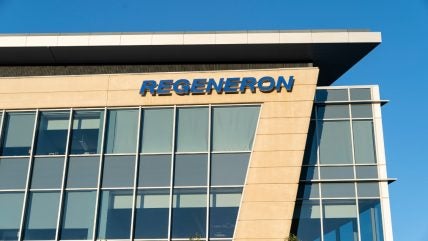
The European Commission (EC) has conditionally approved Regeneron Pharmaceuticals’ Lynozyfic (linvoseltamab) for use in adults with relapsed and refractory multiple myeloma.
This approval applies to patients who have undergone at least three prior treatments, including a proteasome inhibitor, an immunomodulatory agent, and an anti-CD38 monoclonal antibody. It also applies to those who have experienced disease progression during their last treatment.
Lynozyfic functions as a bispecific antibody, targeting B-cell maturation antigen on myeloma cells while activating CD3-expressing T cells to combat cancer.
According to Regeneron Pharmaceuticals, Lynozyfic is the first BCMAxCD3 therapy to receive approval for a dosing schedule every four weeks. This approval is contingent upon achieving a very good partial response or better after 24 weeks of treatment.
The regimen requires monitoring close to qualified treatment centres during the step-up dosing phase to ensure safety. This involves observation for 24 hours post-first and second step-up doses if specific safety events occur.
Regeneron Pharmaceuticals president and chief scientific officer George Yancopoulos said: “Lynozyfic is our second approved bispecific antibody – in this case for relapsed/refractory multiple myeloma patients – reinforcing our relentless commitment to transforming cancer care for those who need it most.
“We are excited by the potential of Lynozyfic and its differentiated clinical profile, dosing and administration. Given the strength of the data, we are pursuing a robust clinical development program exploring its use – in earlier lines of therapy as monotherapy and in novel combinations – with the hope of further advancing care for patients.”
The EC approval follows data from the LINKER-MM1 trial involving 117 participants receiving a 200 mg dose of Lynozyfic. The study revealed a 71% objective response rate, with half of the patients attaining complete responses or better, as verified by an independent review committee.
Among those achieving complete or stringent complete responses, the minimal residual disease negativity rate was 41%. The median duration of response was recorded at 29 months.
Adverse reactions frequently observed included musculoskeletal pain, cytokine release syndrome, neutropenia, cough, diarrhea, anemia, fatigue, pneumonia, and upper respiratory tract infections.
Most cytokine release syndrome cases were mild to moderate, with one instance classified as severe. Infections categorised as Grade 3 or 4 occurred in 36% of patients, with a fatality rate of 4%.
In the US, the Food and Drug Administration (FDA) has accepted the biologics license application (BLA) for linvoseltamab with an expected action date set for 10 July, 2025.
Regeneron Pharmaceuticals also announced upcoming presentations of 27 abstracts related to EYLEA HD (aflibercept) Injection in treating multiple eye conditions. These include analyses of EYLEA HD’s real-world application and comparisons with faricimab based on data from Phase 3 clinical trials.






